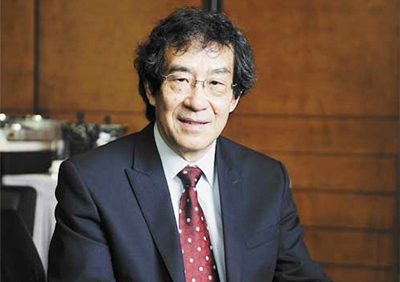


Tu Weiming was born in 1940 in Kunming, Yunnan Province, China. (With ancestors’ home in Nanhai, Guangdong Province). Tu is a preeminent Chinese scholar, a representative figure of contemporary New Confucianism, and a crucial practitioner on the research and transmission of Confucian culture.
After graduation from
Harvard University, Professor Tu taught at Princeton University
(1967-71) and the University of California, Berkeley (1971-81). He
became a Harvard Professor in both Chinese History & Philosophy
studies and Religious Studies in 1981. Later, he served as the Chairman
of Harvard Research Committee of Religious Studies (1984-87), the
Chairman of the Department of East Asian Languages and Civilizations
(1986-89), and the Director of the Harvard-Yenching Institute
(1996-2008).
Professor Tu is currently the Peking University
Chair Professor (2010- ), the Founder and Director of the Institute for
Advanced Humanistic Studies (IAHS, 2010- ), the Director of World Ethics
Center of Peking University (2010- ). So far, Professor Tu Weiming has
supervised over 30 PhD and Post-doctorate students and educated
thousands of undergraduates all over the world.
For over 50
years, Professor Tu has devoted himself to the interpretation of
Confucian Classics, to the evaluation of Confucianism from a perspective
of cultural diversity in the world, and to the revival of Chinese
culture by a creative transformation of the ancient tradition. The
intellectual activities and academic discourses advocated by him, such
as “Cultural China”, “Civilizational Dialogue”, “Reflections on the
Enlightenment”, and “the Third Phase of Confucianism”, have rendered
profound influence in the international circle of thoughts. His broad
scope of academic interests, his sympathetic concern towards both
empirical and transcendental knowledge, his retrospection and strategic
vision of human civilization, made him one of the most insightful and
influential thinkers in the world.